Sample A: Cover Page of Thesis, Project, or Dissertation Proposal
Sample A: Cover Page of Thesis, Project, or Dissertation Proposal
Sample A: Cover Page of Thesis, Project, or Dissertation Proposal
You also want an ePaper? Increase the reach of your titles
YUMPU automatically turns print PDFs into web optimized ePapers that Google loves.
the Overactive-Disruptive group, Coolahan et al. (2000) found that children who engaged<br />
in disruptive play were also hyperactive and had conduct problems in the classroom.<br />
These children demonstrated a general lack <strong>of</strong> emotional competence as defined by<br />
Denham (1998, 2005): Their antisocial play and conduct problems denote a lack <strong>of</strong><br />
socially appropriate expressions <strong>of</strong> emotions and an inability to understand peers‘<br />
expressions <strong>of</strong> emotions; and their high activity levels imply a lack <strong>of</strong> the ability to<br />
regulate emotions.<br />
In addition to these two groups, Coolahan et al. (2000) introduced a third group:<br />
Children who engaged in disconnected play (i.e., ―hovering‖ outside play groups,<br />
wandering, refusing play invitations) were also characterized as inattentive and passive<br />
during classroom activities and as having low levels <strong>of</strong> motivation. These children<br />
possessed some components <strong>of</strong> emotional competence as defined by Denham (1998,<br />
2005), but apparently lacked others: Whereas they do not display behavi<strong>or</strong>s implying a<br />
lack <strong>of</strong> the abilities to understand peers‘ emotional expressions and to regulate emotions,<br />
their disconnected play denotes a lack <strong>of</strong> socially appropriate expressions <strong>of</strong> emotions<br />
(e.g., not reciprocating social and emotional exchanges when refusing play invitations).<br />
Clearly, the w<strong>or</strong>k <strong>of</strong> Coolahan et al. (2000) and Mendez et al. (2002) suggests that<br />
children demonstrating social-emotional competence and active, engaged classroom<br />
behavi<strong>or</strong>s have strong developmental advantages over their less socially skilled and<br />
disengaged peers.<br />
In addition to a variable-centered approach, Mendez et al. (2002) examined<br />
relations between children‘s social-emotional and academic competencies from a person-<br />
38


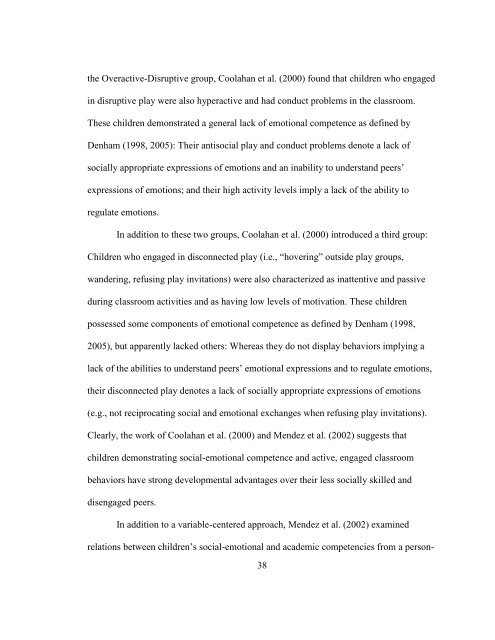
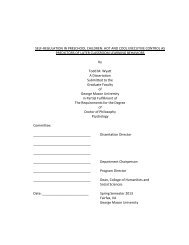
![[Sample B: Approval/Signature Sheet] - George Mason University](https://img.yumpu.com/21978828/1/190x245/sample-b-approval-signature-sheet-george-mason-university.jpg?quality=85)
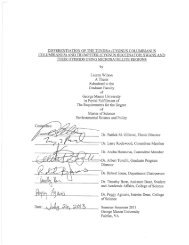
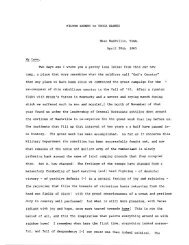
![[Sample B: Approval/Signature Sheet] - George Mason University](https://img.yumpu.com/18694905/1/190x245/sample-b-approval-signature-sheet-george-mason-university.jpg?quality=85)
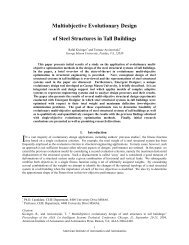
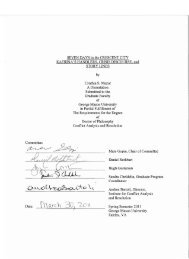
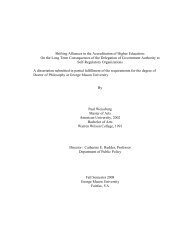
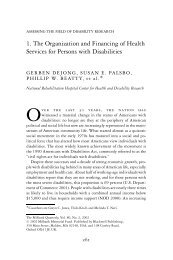
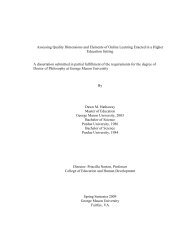
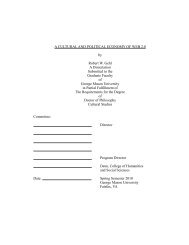
![[Sample B: Approval/Signature Sheet] - George Mason University](https://img.yumpu.com/18694552/1/189x260/sample-b-approval-signature-sheet-george-mason-university.jpg?quality=85)
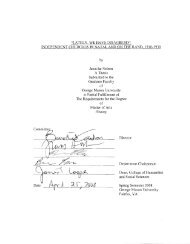
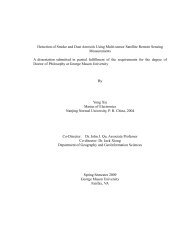
![[Sample B: Approval/Signature Sheet] - George Mason University](https://img.yumpu.com/18694474/1/190x245/sample-b-approval-signature-sheet-george-mason-university.jpg?quality=85)